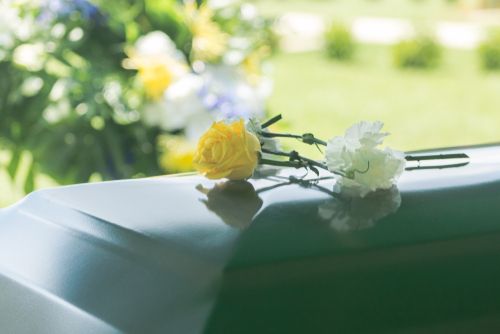 There aren't many things that all cultures around the world have in common, but one thing that connects all people is the desire to mourn together after experiencing loss. Funerals can look very different depending on the country and culture. No matter how fast other aspects of society change, though, funerals remain necessary.
There aren't many things that all cultures around the world have in common, but one thing that connects all people is the desire to mourn together after experiencing loss. Funerals can look very different depending on the country and culture. No matter how fast other aspects of society change, though, funerals remain necessary.
These events obviously play a vital role, but it's not always clear what the benefits of having a funeral are. Loss is a central part of the human experience, and funerals are an important part of the grieving process.
What Is the Grieving Process?
Although death is natural and inevitable, losing a loved one can be very painful, and the journey from shock and pain to acceptance and healing is called the grieving process. Researchers and psychologists have tried to define different stages of the grieving process, but the results have often been misunderstood and interpreted in unhelpful ways. People commonly cite the "Five Stages of Grief" as a model for this process, which includes denial, anger, bargaining, depression, and acceptance. However, the original research study, where the idea of those five stages came from, focused on people who were dying, not people who were grieving.
In reality, people experience grief in many different ways. The process is not straightforward, but it does impact the brain, especially if the loss is connected to a traumatic experience. Learning to live with loss is complicated, which is why it takes time and many steps to achieve a new understanding of life in the absence of a loved one.
How Do Funerals Help People Grieve?
Funerals are essential to the grieving process because they help people cope with loss. In most cultures, people gather together during funerals. This is important for those who feel the loss acutely because they know that they have a social circle to rely on as they mourn. Funerals also provide an opportunity to seek closure and say goodbye to the deceased in culturally appropriate ways. From preparing a final meal for the spirit to carrying the remains up a mountain, funerals help people come to terms with death. When communities come together to mourn, they also show that it's possible to heal.
Can Funerals Hinder the Grieving Process?
While funerals are usually helpful for those grieving, sometimes they can cause further trauma or hinder the healing process. Generally, people agree that having no funeral is worse than having some kind of ceremony or send-off. However, in the case where a funeral isn't culturally appropriate, it can hurt the people experiencing loss. Also, if the funeral is rushed or causes extreme financial stress to the family, it can end up creating other emotional issues that distract from the grieving process.
What Is the Best Way To Plan a Funeral?
The best way to plan a funeral to make sure that everyone affected can grieve properly is to respect cultural traditions and get the family and community involved. That doesn't mean that every funeral should feel like a party or should involve hundreds of people. At the same time, grieving is not something that people should try to do alone, which is why it's better to have a group effort when planning a funeral.
In some cases, it's easier to hold a ceremony after some time has passed. Even if people cannot gather immediately to perform the funeral rites, many cultures hold multiple events and ceremonies over days, weeks, or even months to allow different parts of the community to come together to grieve.
Funerals are both culturally relevant and psychologically important. Grieving together is one of the first steps in the healing journey.
Add Your Comment